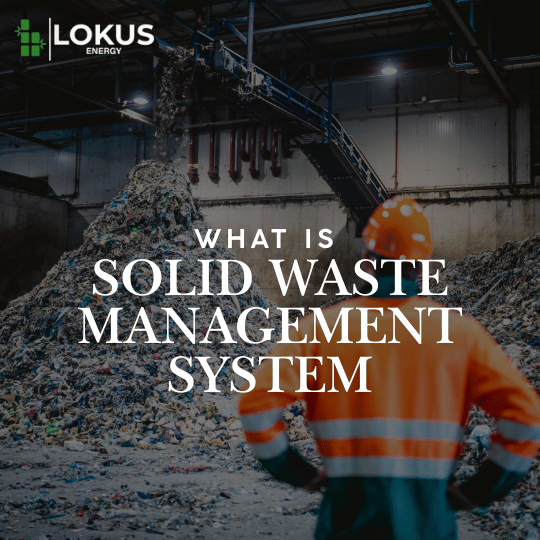What is Solid Waste Management System
A solid waste management system refers to the process of collecting, transporting, treating, and disposing of solid waste in a way that is safe, efficient, and environmentally responsible. The goal of this system is to reduce the environmental impact of waste, promote sustainability, and ensure public health and safety.
Waste Generation: This is the first stage where waste is created, which can include household waste, industrial waste, commercial waste, construction debris, and more.
Waste Collection: Waste is collected from various sources like homes, businesses, factories, and public areas. This typically involves the use of bins, dumpsters, and waste collection vehicles.
Waste Segregation: Waste is sorted into different categories such as biodegradable (organic waste), recyclable (plastic, glass, metal), and non-recyclable (hazardous waste, e-waste). This is important to make the subsequent processing easier and more efficient.
Transportation: After collection and segregation, the waste is transported to designated treatment or disposal facilities, like landfills, recycling centers, or composting units.
Waste Treatment and Processing:
Recycling: The recyclable materials (such as paper, plastic, glass, and metal) are processed and turned into new products.
Composting: Organic waste like food scraps and garden waste is decomposed to produce compost, which can be used as a natural fertilizer.
Waste-to-Energy (WTE): Some waste can be converted into energy (electricity or heat) through processes like incineration.
Landfilling: Non-recyclable waste may be buried in landfills, though this is typically considered a last resort due to environmental concerns.
Disposal: Proper disposal involves either landfill containment or incineration of the waste that cannot be recycled or treated. Disposal methods need to minimize environmental harm, such as water and air pollution.
Public Awareness and Education: An essential aspect of effective solid waste management is public education. Encouraging people to segregate waste, recycle, reduce waste production, and dispose of hazardous materials responsibly helps reduce the overall burden on the system.
Objectives of Solid Waste Management:
Environmental Protection: Prevent pollution of air, water, and soil.
Public Health: Reduce disease transmission by managing waste properly.
Resource Recovery: Maximize the recycling and reuse of materials.
Energy Generation: Create energy from waste materials, if possible.
Sustainability: Ensure waste management practices are economically viable and ecologically responsible.
